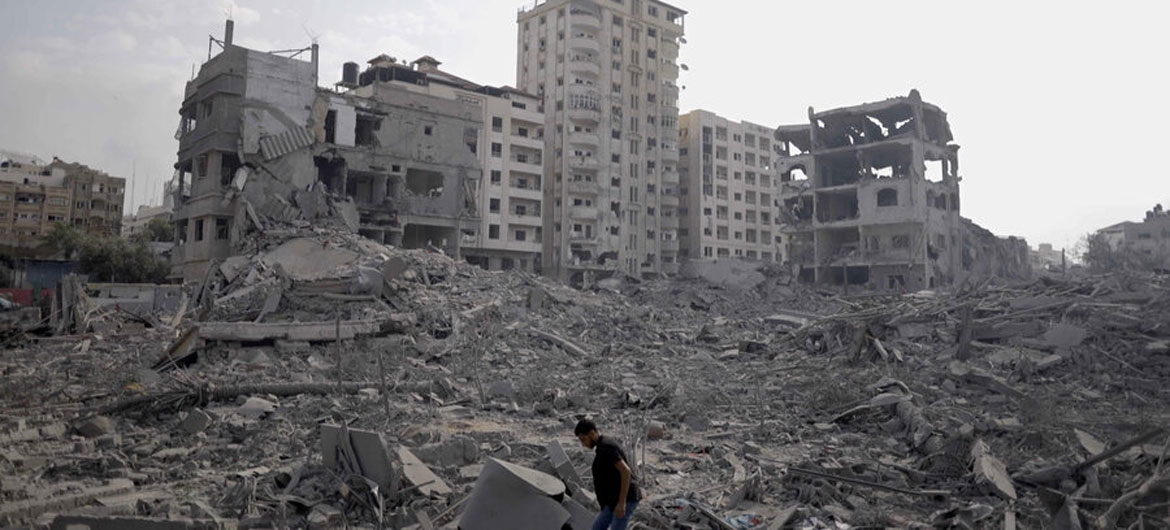UN’s WFP Exhausted Food Supplies in Gaza Amid Israeli Blockade
The United Nations’ food arm has issued a dire warning of depleted food supplies in the Gaza Strip due to the imposed blockade by Israel. The World Food Programme (WFP), which provides vital nourishment to countless Palestinians in the region, stated that it has exhausted its existing food reserves. As of last Friday, the agency had distributed its final available food supplies. The food facilities it supports are anticipated to deplete their remaining stock in the imminent days.
The WFP has readied a huge store of 116,000 tonnes of food, enough to feed an approximate one million people for a period of four months. However, this huge stock is waiting to cross into Gaza, and can only do so once Israel removes its ongoing blockade which has lasted for close to eight weeks.
More than 80% of Gaza’s population, which is over two million, is largely dependent on charity kitchens for their sustenance after alternative resources ceased operation due to the continuous closure of entry points into the region. This report comes from the United Nations. The charity kitchens supported by the WFP have thus been the only steady provision of food for Gaza inhabitants for a number of weeks.
An impressive number of 644,000 meals are served daily by the WFP. However, in the absence of the UN agency, there is uncertainty regarding how many of these kitchens will be able to continue their operations in Gaza.
Recent Israeli military operations in Gaza reportedly led to the loss of at least 78 lives in a single day, as per the health ministry of the Hamas-controlled region of Gaza. This escalating situation unfolds in the shadow of ongoing Israeli airstrikes in the region. The Israeli government has yet to provide public comment on the fresh warnings from the WFP.
On 2 March, Israel ceased the entry of all forms of supplies into Gaza including food, fuel, medicine and additional essentials, reinstating aerial bombing over Gaza after a fortnight, thereby ending a ceasefire that had lasted two months. The call to halt the aid flowing into Gaza followed the refusal of Hamas to grant an Israeli proposal for extending the initial phase of the Gaza ceasefire.
Hamas had aimed to advance to the ceasefire’s second phase, towards the path of enduring peace. During this time, Israel expressed an urgent desire to release more hostages, thus prolonging the existing phase. Israel justified its claim regarding the aid halting by stating that Hamas intercepts aid trucks and converts the aid into weaponry.
However, humanitarian workers vehemently deny these claims and argue that the UN closely oversees the process of distributing supplies. The British government has also spoken up on this matter, declaring that by obstructing aid from reaching Gaza, Israel is in direct violation of international laws.
In the absence of fresh food supplies, many regular items like meat, eggs, dairy products, fruits, and numerous vegetables have vanished from Gaza’s markets. Commodities that remain available have seen a sharp uptick in prices, which is now unaffordable for a large segment of the population.
Murmerings of a nutrition crisis are growing louder with each passing day, causing leading charitable organizations to warn of an impending humanitarian crisis. The recent surge in violence was triggered on 7 October 2023 when Hamas, alongside other militant groups, aggressively breached the southern Israeli border leading to the death of roughly 1,200 people and the kidnapping of 251 hostages.
Although a majority of the hostages have been released since the incident, the issue of those still held captive remains a major barrier in achieving.. a ceasefire. The latest conflict has resulted in more than 51,000 deaths, an alarming number of them being women and children, according to reports from the health ministry run by Hamas. However, it’s important to denote that such counts do not distinguish between civilian casualties and militant casualties.

